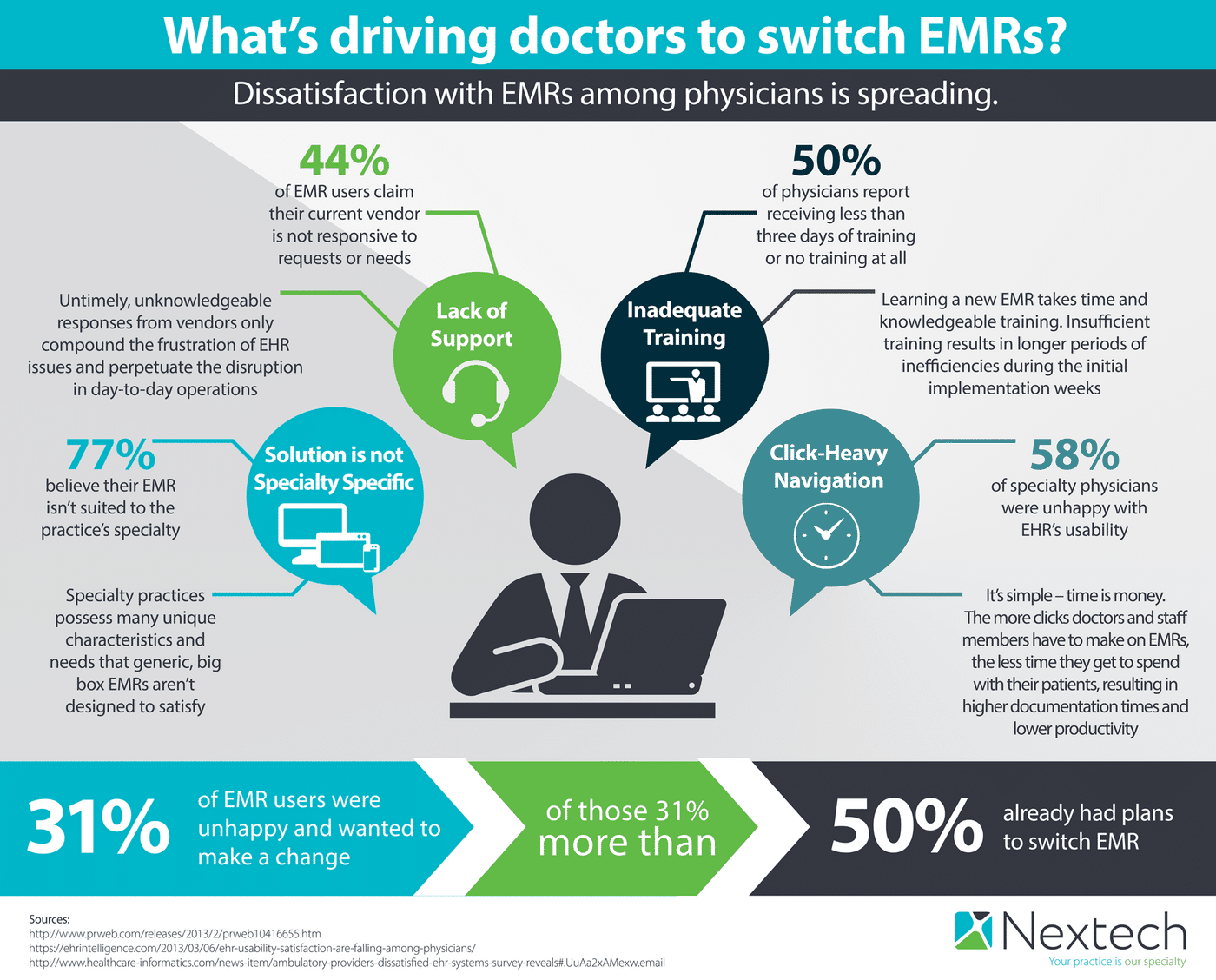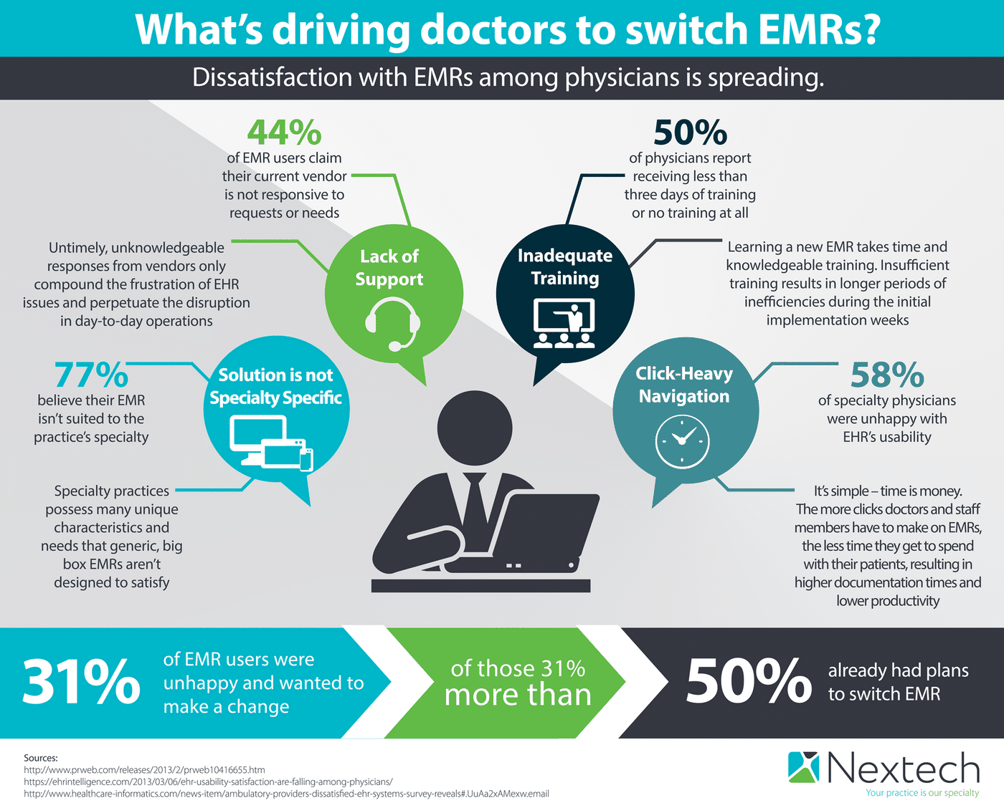

Electronic medical records (EMRs) have transformed the medical world, impacting patient care and day-to-day operations at medical practices across the country.
And although EMRs continue to develop and evolve to the ever-changing needs of the medical community, there are many physicians unhappy with their current EMR solution.
According to a 2013 Black Book survey, changing EMRs is on the minds of nearly one-third of physicians.
- 31 percent of EMR users were unhappy and wanted to make a change
- Of those 31 percent, more than 50 percent already had plans to switch EMRs
Why is this becoming more of a trend? Here are four reasons why doctors are looking to change EMRs:
Solution is not suited to the practice’s specialty
Simply put, specialty practices have specific needs that can’t be met by those generic, big box EMR solutions. However, in the rush of purchasing an EMR in order to qualify for incentives, many practices found themselves with a solution that wasn’t aligning with their needs – more than 75 percent of EMR users believe their solution isn’t suited for their specialties. When an EMR doesn’t align with the practice’s specific day-to-day workflows, it makes the physician’s job much tougher.
Lack of customer support
No matter how good a product might be, untimely and unresponsive support can easily sour one’s overall experience. The same can be said for EMR solutions. Practices want to feel supported by their EMR vendors, not abandoned. With 44 percent of EMR users claiming their vendor is unresponsive to their issues, it’s no surprise more and more physicians are looking to make a change. Ultimately, a lack of customer support can significantly hinder a practice’s day-to-day operations and negatively impact the bottom line.
Inadequate amount of training
Learning how to use a brand new EMR isn’t a simple process, and practices that don’t receive the proper amount of training will quickly become frustrated. Fifty percent of EMR users reported receiving less than three days or no training at all when it came to learning their new solution. A lack of understanding also results in longer periods of inefficiency, which will ultimately affect the practice’s overall patient care.
Complicated and click-heavy navigation
Ease of use is crucial to a practice’s overall satisfaction with their EMR. Unfortunately, more and more specialty physicians are experiencing the opposite as 58 percent of specialty physicians are unhappy with their EMR’s usability. Time is money and the longer doctors have to focus on the EMR, the less time they have to focus on the patient.
Ultimately, an EMR should enhance, not hinder patient care. If your practice is experiencing anyone of these frustrations, it could be time to re-evaluate EMR solutions and join the growing number of physicians looking for the solution that best aligns with their practice’s needs.
HERE ARE SOME RELATED ARTICLES YOU MAY FIND INTERESTING
Revenue Cycle Management | Healthcare Technology
Setting the Revenue Cycle for Success
By: Nio Queiro | August 29th, 2024
How Healthcare Chatbots Help Clinics Provide Better Care
By: Nextech | May 31st, 2024
